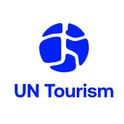UN Tourism Calls for Cross-Cultural Dialogue and Climate Actions in Tourism
UN Tourism has joined leading international organizations and government leaders at the World Forum on Intercultural Dialogue, held in Baku around the theme of "Dialogue for Peace and Global Security: Cooperation and Interconnectivity."

The sixth edition of the Forum forms part of the "Baku Process", launched by President Ilham Aliyev in 2008, brought together more than 700 participants from 107 countries, including 60 Ministers of Culture. Serving as the sector’s voice, UN Tourism held a special session on the sector’s role in fostering connections in post-conflict societies, with reference to Bosnia & Herzegovina, Colombia, and Rwanda.
Opening the main high-level forum, UN Tourism Executive Director Zoritsa Urosevic said: At UN Tourism, we have a duty to foster people’s desires to discover the world, making the unknown more inviting and building new connections between strangers, and also to give back to tourism the power to build bridges, because Tourism Opens Minds.
Participating in the 3rd High-Level Meeting of International Organizations on Sustainable Pathways for a Greener Future, Ms. Urosevic highlighted UN Tourism’s commitment towards transforming the sector. She concluded: As we look ahead to COP29 in Baku and future collaborations, I encourage all stakeholders to join us in the transformation of the tourism sector for a greener future. Our value chain cuts across various sectors, offering numerous opportunities to catalyze change for a more sustainable future.
Top forum for international cooperation
The primary objective of the World Forum on Intercultural Dialogue is to explore the critical intersections between dialogue facilitation, cooperative frameworks, leadership efficacy, and the complex dynamics of interconnectedness, all in the service of advancing global peace and security imperatives. Over three days, a series of plenary sessions and panel discussions brought together a diverse range of stakeholders, including government officials, representatives from international organizations, eminent cultural figures, journalists, civil society actors, and intellectuals from across the globe, to deliberate upon pressing global challenges. Joining UN Tourism partnership in Baku were representatives of the United Nations Alliance of Civilizations (UNAOC), UNESCO, and the Islamic World Educational, Scientific, and Cultural Organization (ICESCO).
Tourism and the Baku Process
Building upon the legacy of previous iterations of the forum held in 2011, 2013, 2015, 2017, and 2019, which collectively comprised more than 250 events and attracted nearly 10,000 participants from 180 countries and 30 international organizations, the 6th edition of the World Forum on Intercultural Dialogue aimed to further solidify the "Baku Process" as a preeminent international platform for fostering intercultural collaboration and dialogue.
The significance of the "Baku Process" has been duly acknowledged by major international bodies, with the United Nations Secretary-General's Annual Report of 2017 to the United Nations General Assembly on intercultural and interreligious dialogue recognizing it as a pioneering initiative in advocating for dialogue among cultures. Subsequently, the United Nations General Assembly unanimously adopted a resolution acknowledging the "Baku Process" as a pivotal global mechanism for promoting intercultural dialogue. Furthermore, at its 215th session, the Executive Board of UNESCO passed a resolution voicing robust support for the "Baku Process" and urging all member states and major international organizations to actively engage with it.
Related links:
About UN Tourism
The World Tourism Organization (UN Tourism) is the United Nations agency responsible for the promotion of responsible, sustainable and universally accessible tourism.
As the leading international organization in the field of tourism, UN Tourism promotes tourism as a driver of economic growth, inclusive development and environmental sustainability and offers leadership and support to the sector in advancing knowledge and tourism policies worldwide.
Our Priorities
Mainstreaming tourism in the global agenda: Advocating the value of tourism as a driver of socio-economic growth and development, its inclusion as a priority in national and international policies and the need to create a level playing field for the sector to develop and prosper.
Promoting sustainable tourism development: Supporting sustainable tourism policies and practices: policies which make optimal use of environmental resources, respect the socio-cultural authenticity of host communities and provide socio-economic benefits for all.
Fostering knowledge, education and capacity building: Supporting countries to assess and address their needs in education and training, as well as providing networks for knowledge creation and exchange.
Improving tourism competitiveness: Improving UN Tourism Members' competitiveness through knowledge creation and exchange, human resources development and the promotion of excellence in areas such as policy planning, statistics and market trends, sustainable tourism development, marketing and promotion, product development and risk and crisis management.
Advancing tourism's contribution to poverty reduction and development: Maximizing the contribution of tourism to poverty reduction and achieving the SDGs by making tourism work as a tool for development and promoting the inclusion of tourism in the development agenda.
Building partnerships: Engaging with the private sector, regional and local tourism organizations, academia and research institutions, civil society and the UN system to build a more sustainable, responsible and competitive tourism sector.
Our Structure
Members: An intergovernmental organization, UN Tourism has 160 Member States, 6 Associate Members, 2 Observers and over 500 Affiliate Members.
Organs: The General Assembly is the supreme organ of the Organization. The Executive Council take all measures, in consultation with the Secretary-General, for the implementation of the decisions and recommendations of the General Assembly and reports to the Assembly.
Secretariat: UN Tourism headquarters are based in Madrid, Spain. The Secretariat is led by the Secretary-General and organized into departments covering issues such as sustainability, education, tourism trends and marketing, sustainable development, statistics and the Tourism Satellite Account (TSA), destination management, ethics and risk and crisis management. The Technical Cooperation and Silk Road Department carries out development projects in over 100 countries worldwide, while the Regional Departments for Africa, the Americas, Asia and the Pacific, Europe and the Middle East serve as the link between UN Tourism and its 160 Member States. The Affiliate Members Department represents UN Tourism's 500 plus Affiliate members.
UN Tourism Communications Department
+34 91 567 8100
UN Tourism
